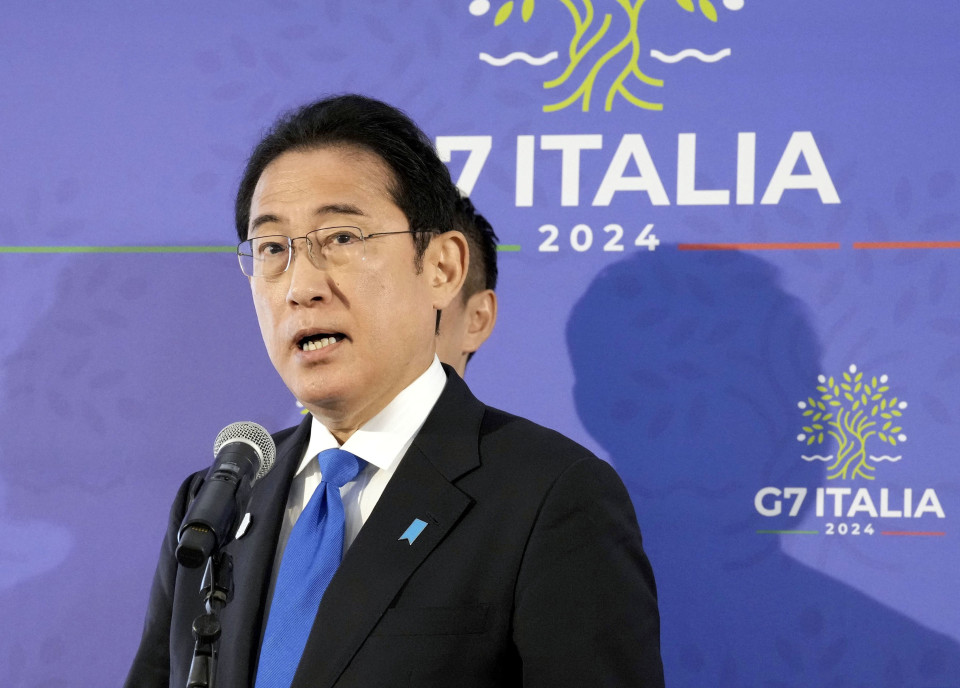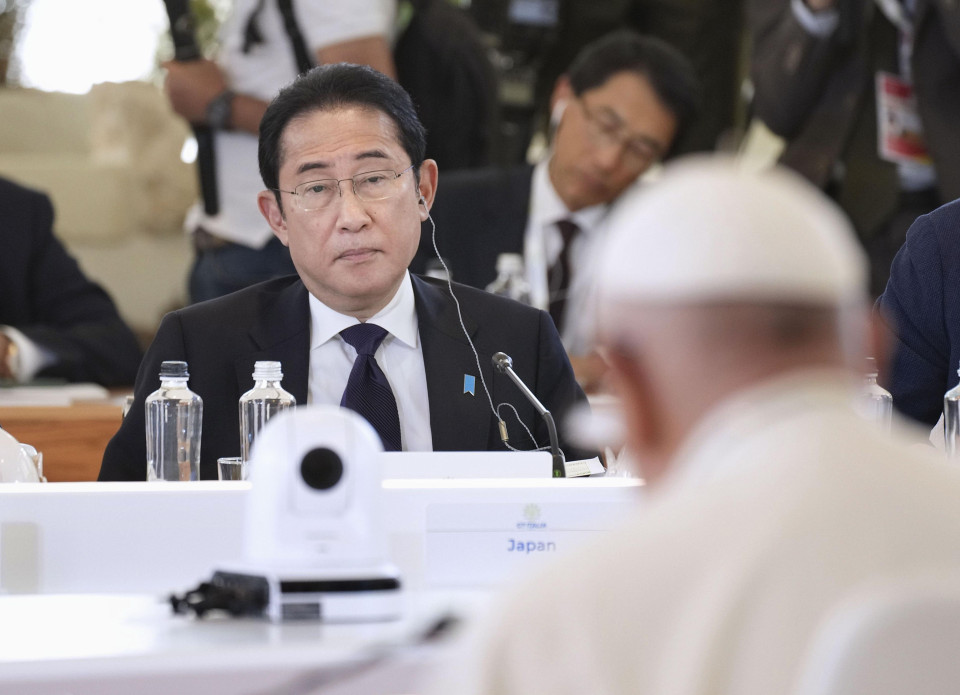The Group of Seven developed nations must continue to tackle issues related to the Indo-Pacific region, especially regarding China, "as priority," Japanese Prime Minister Fumio Kishida said Saturday, as Europe has recently turned its focus to the Middle East and migration.
Kishida also told reporters after attending the three-day G7 summit from Thursday in Fasano, southern Italy, it was meaningful that the group built upon the outcomes of last year's leaders meeting in Hiroshima, which he hosted in his home constituency.

His remarks came as not all G7 countries have adopted a hard-line stance against China, with some European nations seeking to maintain stable relations with Beijing due largely to their dependency on the world's second-biggest economy.
In a bid to keep the interest of other G7 democracies focused on China, which has been strengthening its military and economic clout in the Indo-Pacific region, Kishida has emphasized the significance of the group's unity against Beijing for global peace and stability.
"We affirmed that we will work closely together to deal with various challenges surrounding China and North Korea's nuclear and missile development and Beijing's "nonmarket policies and practices that have caused market-distorting overproduction," Kishida said.
With Beijing getting closer to Moscow, Kishida also said that Japan is considering a new sanction package in response to Russia's invasion of Ukraine, aimed at entities in third countries like China that have aided Russia in evading existing punitive measures.
In a communique released Friday, the G7 leaders strongly opposed "any unilateral attempt to change the status quo" in the East and South China seas while reaffirming their pledge to achieve a "world without nuclear weapons" in reference to the Hiroshima summit.
Meanwhile, the gathering of the G7 -- Britain, Canada, France, Germany, Italy, Japan and the United States, plus the European Union -- took place as Kishida's Cabinet is suffering low approval ratings amid a political funds scandal that has rattled his Liberal Democratic Party.
Asked whether he intends to dissolve the House of Representatives by the end of the ongoing parliamentary session through June 23, Kishida said, "I will make achievements on issues that cannot be postponed" and "I don't think about anything else."
The current four-year terms of lower house members expire in October 2025 unless Kishida dissolves the chamber for a snap election. Under Japan's Constitution, the prime minister can decide whether to dissolve the lower house.
At home, the ruling LDP has come under scrutiny after some of its factions, including one previously headed by Kishida, neglected to report portions of their incomes from fundraising parties and maintained slush funds for years.
Earlier this month, the lower house cleared a bill proposed by the LDP to reform rules on political party funds. The opposition bloc, however, has criticized it for not being effective in resolving the nation's long-standing issue of politics and money.
Following weeks of fraught inter-party talks, the LDP finally drafted the revised bill. However, it does not reflect opposition parties' requests, such as the introduction of guilt by association, which could punish lawmakers if their staff members are convicted.

Related coverage:
G7 ups pressure on China, condemns Russia-North Korea military ties
Japan, Ukraine sign deal for long-term support amid Russian war
G7 leaders agree to provide at least $50 billion in aid for Ukraine
 By Keita Nakamura,
By Keita Nakamura,









